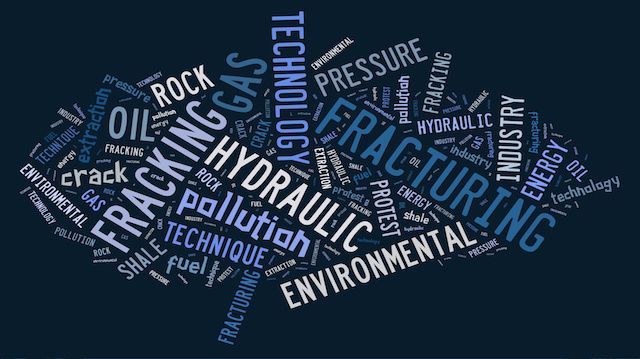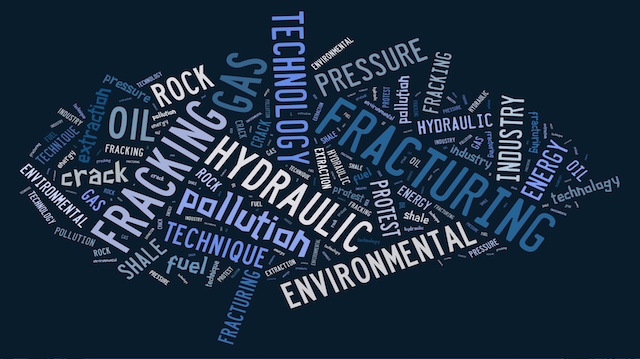
Fracking is the process of sending shockwaves, water and slurry into the ground to open up oil reserves. Fracking has been in use since the 1930s and has been a common practice since 2003.
The widespread use of fracking in the United States has triggered earthquakes and other ground instabilities, but it also causes problems on a personal level. If you think fracking doesn’t affect you personally, you may think differently after reading these seven impacts of fracking.
Fracking threatens our groundwater
According to a report by the American Society of Mechanical Engineers (ASME), most fracking takes place in wells 2,000 feet deep or less. This increases the risk of groundwater contamination, because the materials used for fracking enter the groundwater used for irrigation and drinking water. This allows chemicals and other contaminants into drinking water
Many current water treatment systems do not filter fracking chemicals, meaning that these chemicals are present in our drinking water and food. Many of these chemicals have unknown safety risks.
Oil spills are common
In California and other fracking locations, oil spills are common. A 2015 study conducted by the California Council on Science and Technology found that there were 575 oil spills related to fracking between 2011 and 2014 in California alone. Eighteen percent of those spills directly affected water supply and contaminated groundwater.
Fracking wastes water
During a time when groundwater supplies are diminishing, fracking uses a huge amount of water to open up oil reserves. The CCST study found that in California, 4 billion gallons of water are used for fracking a year.
Fracking destroys food quality
Since fracking uses so much water, some oil companies have siphoned the wastewater for other purposes. A large portion of water used for fracking is reused to irrigate crops. However, the water is filled with chemicals, oil and other contaminants that are not filtered before the water is used on crops.
This means that our food is directly contaminated, and this could increase the chance for damaged, inedible food and potentially lead to health problems such as cancer and nutrient deficiencies.
Fracking chemicals are largely unregulated
Since fracking is not directly involved with food or agriculture, the materials used for the process, which includes hundreds of toxic chemicals, are largely unregulated. The CCST study found that of the hundreds of chemicals used, two-thirds of the chemicals had no safety tests or had no testing performed for possible safety or health hazards.
This toxic cocktail of chemicals is being pushed directly into the earth and water, and the effects are completely unknown.
Fracking can cause earthquakes
Fracking is attributed with increasing the number of earthquakes around the world. In Texas, earthquakes were virtually unknown before fracking began. Now earthquakes near fracking sites are common, and the earthquakes have only increased in intensity over time.
In areas near fault lines, like California, the risk of a deadly earthquake triggered by fracking is likely. These earthquakes can potentially cause multiple deaths and millions of dollars in property damage.
Fracking is dangerous to animals
 Our ecosystem depends on the balance between wildlife and humans. However, fracking is destroying this balance, and this can have widespread consequences on a personal level. Fracking has destroyed the habitats of many wild creatures and has been particularly damaging to the fish population.
Our ecosystem depends on the balance between wildlife and humans. However, fracking is destroying this balance, and this can have widespread consequences on a personal level. Fracking has destroyed the habitats of many wild creatures and has been particularly damaging to the fish population.
Fracking has increased the chemical content of the ocean to the point where it is almost unsafe to eat fish raised in the ocean. The CCTS study found that chemicals used in fracking have severely reduced aquatic life and increased the chemicals found in fish.
What we don’t know about fracking is alarming. Oil companies have implemented this dangerous practice in search for money and oil, but the risks on a personal level are far-reaching. Anyone living near a fracking site is in direct danger of chemical pollution and unknown health risks from the chemicals used in fracking.
It can take years before symptoms are attributed to a cause, and by the time fracking is thoroughly studied, it may be too late to help the people who have already been exposed to this dangerous practice. Additional safety measures are required to prevent further damage to food supplies, wildlife, groundwater, marine life and humans.
—Brenda Priddy
Brenda is a writer, chef and health nut with many years of writing experience in the alternative health industry. She specializes in health news, healthy living, alternative treatments, and healthy recipes. She loves educating others about sustainable, healthy living. Brenda lives in Texas with her husband and two daughters.
Sources:
http://californiansagainstfracking.org/wp-content/uploads/2015/07/10-Reasons-to-Ban-Fracking-in-CA-final-with-logo.pdf
https://www.asme.org/engineering-topics/articles/fossil-power/fracking-a-look-back

